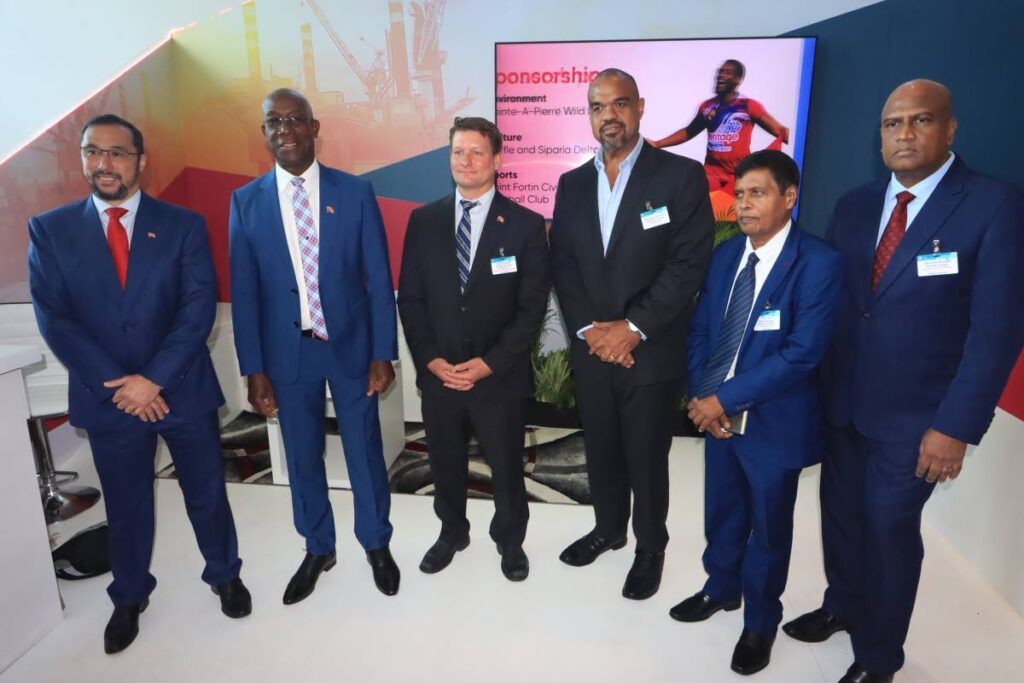Energy Chamber chair: 'Saving a year on oil well saves US$120m'

ENERGY Chamber chairman Jerome Dookie made a plug for quicker approvals of energy projects by regulatory bodies by saying reducing the waiting time to drill an oil well by one year could save US$120 million.
He was addressing the Energy Chamber's energy conference at the Hyatt Regency, Port of Spain, on January 23.

Dookie said the chamber's pre-pandemic conference in 2020 heard the findings of a report outlining all steps needed to take a gas field from bid round to first gas.
"The report found that there were 33 approvals needed across eight different agencies, with an average 12 years from the launch of a bid round to first gas.
"The study also calculated that if that time could be shortened by one year, the net present value of a typical TT shallow water gas field would increase by US$120 million."
He said such a savings would make an investment more attractive and could be shared across the value chain for the benefit of all stakeholders, including the people of TT, simply by doing things faster.
"In closing, the Energy Chamber’s offer to the Government at this year’s conference is to work closely with you to make that target – of reducing the time taken to first gas – a reality. That is a win-win-win proposition for the government, for the people, and for all our member companies, big and small."
He said it was vital to maximise how much value is retained from investment dollars spent during this period, with in-country work maximised by collaboration among operators.
"Even as we stress the importance of accelerating action to improve the present situation and secure our future, Energy Chamber board members have reported some recent positive examples of approval processes being fast-tracked," he said. "One reported a very quick approval process for a new road for a drilling programme, as the relevant agencies worked in parallel."
Another board member reported a noticeable reduction in time for an approval from the Environmental Management Authority.
"These examples show that approvals can move faster. We need to ensure that these gains are repeated and become the new norm."
Dookie was very concerned about the plight of small and medium businesses, some still emerging from the pandemic.
He said the present situation remained very challenging for the industry, especially its smaller member companies and individuals.
"Most of our member companies are small- to medium-sized businesses, which collectively account for the majority of jobs in the energy sector.
"Many of these companies have been struggling for a number of years."
While the medium-term future holds promise, the current circumstances remain difficult for many companies.
"In order to take advantage of the future opportunities that have been created over the past year, and to have an industry which is viable over the longer term, we need to ensure that the smaller service companies and contractors are able to survive.
"As we all know, the energy industry is an ecosystem, and we need to look after all members of our industry."
Even as TT's hydrocarbon basin matures, he said TT can be made a more attractive as an investment destination. This can be done by increasing gas production and ensuring companies' commodities can access international markets, Dookie advised.
"Over the past year we have seen some positive developments with respect to most of these advocacy areas. There have been some changes to the fiscal regime, for example, with Supplemental Petroleum Taxes.
"We still think that more is required in this area, and we are in active dialogue with Government and hope to see further changes soon.
"We especially need fiscal measures that will help the economics of investing in small gas fields."

Comments
"Energy Chamber chair: ‘Saving a year on oil well saves US$120m’"